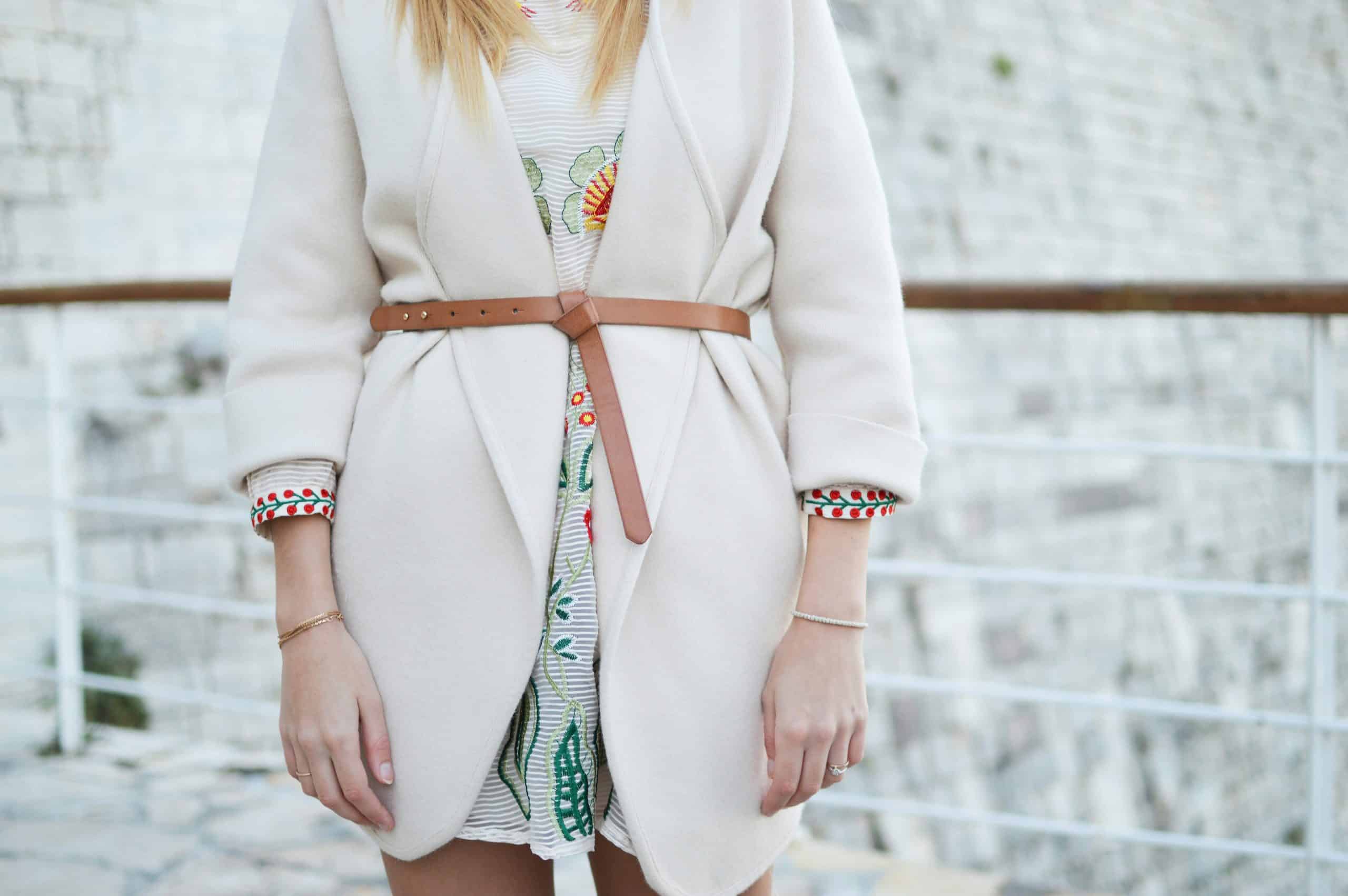The best ethical fashion brands

As we delve deeper into the 21st century, a growing number of consumers are seeking out fashion that represents their values. This shift towards conscientious consumption has birthed the rise of ethical fashion. Brands are realizing the importance of sustainability, adopting eco-friendly materials, and endorsing fair-trade practices. But with a myriad of options to choose from, it can be hard to determine the best ethical fashion brands. Let’s help you navigate this field and introduce you to some of the top brands that are setting the pace when it comes to sustainable fashion.
The importance of ethical fashion
Ethical fashion negates the notion that style and sustainability cannot coexist. It appeals to the growing number of consumers who want to look good and do good at the same time. The fashion industry, which has often been maligned for its wasteful practices and unfair labor conditions, is now being held accountable. Many brands are making a dedicated effort to become more sustainable and ethical, from using organic and recycled materials to adhering to fair-trade practices. Some even go the extra mile to obtain certifications that prove their commitment to sustainability.
Cela peut vous intéresser : Mastering the art of french tucking with different tops
Brands on the vanguard of ethical fashion are not just making a statement with their clothes; they are also making a significant contribution to the global effort to mitigate climate change and promote social equity. They understand the importance of their role in shaping a more sustainable future for the fashion industry.
Brands that use organic and recycled materials
The first step towards ethical fashion is sourcing materials responsibly. Here, we’ll introduce you to some brands that have made a commitment to use only organic and recycled materials.
A voir aussi : How can you style a silk scarf in different ways?
Patagonia, a renowned outdoor clothing brand, has made a name for itself in the sustainable fashion industry. They have a wide range of clothing made from recycled materials, including recycled down, wool, and polyester.
Everlane, another trailblazer in ethical fashion, is committed to transparency about its supply chain. The brand uses organic cotton and recycled materials in almost all its products, making it a favorite among environmentally conscious shoppers.
The fashion industry has seen a surge in brands that use organic cotton, recycled polyester, and other low-impact materials. These brands are taking significant steps to reduce their environmental footprint.
Certified ethical brands
Trust is a significant factor when it comes to ethical fashion. Brands must prove to consumers that their claims of sustainability and fair practices are not just lip service. One way to establish this credibility is by obtaining certifications from recognized bodies.
People Tree, a pioneer in sustainable fashion, is a certified fair trade brand and boasts the World Fair Trade Organization’s product mark on its items. This certification guarantees that People Tree adheres to the highest ethical and environmental standards.
Another standout is Eileen Fisher. This brand is committed to sustainability, with most of its cotton being organic and certified by the Global Organic Textile Standard. This certification ensures that the cotton is grown without harmful chemicals, benefitting both the environment and the workers.
Sustainable women’s wear
Fashion-conscious women seeking to curate an ethical wardrobe have numerous options to choose from. From everyday basics to luxury pieces, plenty of brands cater to the fashion-forward woman who also cares about the planet.
Reformation is a brand that has mastered the blend of style and sustainability. They use eco-friendly materials like organic cotton and recycled fabrics and are transparent about their environmental impact.
Thought, a UK-based brand, offers a range of women’s clothing made from sustainable materials like organic cotton and bamboo. Their garments are not only eco-friendly but also comfortable and stylish.
Brands committed to waste reduction
Waste reduction is a critical aspect of sustainability. By minimizing waste, brands can significantly reduce their environmental impact.
Tonlé, a zero-waste fashion brand, uses every last scrap of material in its production process. Their creative approach to design ensures that no fabric goes to waste.
Another innovative brand in this category is For Days. Their circular model allows customers to swap worn clothes for new ones, reducing the amount of clothing that ends up in landfills.
Brands promoting fair labor practices
Just as important as environmental sustainability is social sustainability. Brands that promote fair labor practices ensure that the people who make their clothes are treated with respect and dignity.
Everlane, which we mentioned earlier, is also known for its commitment to ethical labor practices. They promise transparency about their factories, ensuring workers are paid fairly and work in safe conditions.
Another standout in this category is Nisolo. This brand prioritizes fair wages and healthy working environments in its supply chain, contributing to the wellbeing of its workers.
In closing, ethical fashion is more than a trend. It’s a movement promoting respect for our planet and the people who inhabit it. By choosing to shop ethically, you’re contributing to a more sustainable future for fashion.
Ethical Men’s Wear: Redefining Style and Sustainability
The conversation around ethical fashion isn’t restricted to women’s wear. Numerous brands are making waves in men’s fashion too, providing high-quality, stylish pieces with a promise of sustainability. These brands have successfully debunked the myth that fashion and environmental consciousness can’t go hand in hand.
Famous for its eco-friendly and stylish sneakers, Veja is a brand that prides itself on using organic cotton, wild rubber, and other upcycled materials. Transparency is the cornerstone of Veja’s operations; they maintain transparency in their supply chain, ensuring fair trade practices.
There’s Patagonia, already mentioned for its use of recycled materials, which also offers a fantastic range of men’s clothing. They continually work on innovative ways to reduce their environmental impact, making them a big hit amongst conscious shoppers.
Knowledge Cotton Apparel, a clothing brand that focuses on men’s wear, is another notable mention. The brand is committed to producing GOTS certified organic cotton clothing that’s not just comfortable but also durable.
Choosing ethical men’s wear brands like these not only means you’re opting for high-quality, stylish clothing but also contributing towards a more sustainable future.
Ethical Kid’s Wear: Making Sustainable Choices for the Younger Generation
When choosing fashion for our children, more and more parents are leaning towards sustainable choices. Kid’s wear brands that focus on producing clothing using sustainable materials and ethical practices are gaining popularity.
MATE Label is a frontrunner in this category. They use clean, certified organic cotton for their clothing line, ensuring that their garments are non-toxic, safe, and gentle on children’s skin. They are also transparent about their supply chain, ensuring fair practices at every step.
Mini Rodini goes one step further, not just using organic cotton but also recycled materials for their quirky, fun designs. They are a certified fair trade brand, ensuring fair wages and working conditions for their workers.
By choosing ethical kid’s wear brands like these, parents are ensuring their children’s clothes are free from harmful chemicals and are also setting an example for the younger generation about the importance of making sustainable choices.
A concluding note on Ethical Fashion Brands
The growing demand for ethical fashion is a beacon of hope, indicating a positive shift towards sustainability in the world of fashion. More and more brands are choosing to put the environment and people before profits, using organic cotton, recycled materials, and fair trade practices to produce high-quality, stylish clothing.
Brands like Patagonia, Everlane, People Tree, Reformation, Thought, Tonlé, For Days, and Nisolo, have all set an example in various categories like women’s wear, men’s wear, and kid’s wear, by committing to ethical and sustainable practices.
On the other hand, brands like Girlfriend Collective have shown that sustainability can extend beyond clothing to other fashion items, by producing eco-friendly activewear from recycled materials.
While on the higher end of the price range, investing in pieces from these ethical fashion brands is an investment in the future of our planet. As consumers, we have the power to drive change in the fashion industry by choosing to support sustainable fashion over fast fashion.
As we head towards 2024, let’s make it a resolution to be more mindful of our fashion choices, understanding their impact on the environment, and the people involved in the supply chain. The rise of ethical fashion brands is a breath of fresh air, and it’s up to us to ensure that this isn’t just a trend but a lifestyle.
